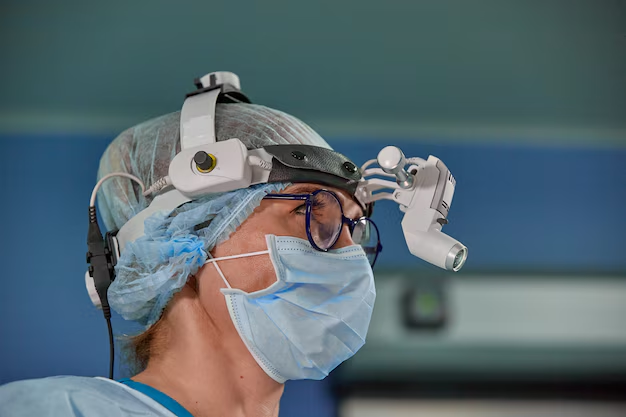Can You Fly After Cataract Surgery? ✈️👁️ Essential Insights for a Smooth Journey
Is Air Travel Safe After Cataract Surgery?
If you've recently undergone cataract surgery or are planning to, you might be wondering if it's safe to hop on a plane soon after the procedure. According to medical professionals, the general consensus is that flying after cataract surgery is indeed possible. However, there are several factors you should understand to ensure both a safe journey and a smooth recovery.
Cataract Surgery 101
To appreciate why there's even a question about flying post-surgery, it's helpful to understand what cataract surgery entails. This procedure involves removing the cloudy lens of the eye and replacing it with an artificial one. The surgery is typically quick, minimally invasive, and often performed on an outpatient basis. Recovery is usually rapid, but like any surgical procedure, it requires some aftercare to ensure optimal outcomes.
How Soon Can You Fly?
Timing is a vital consideration when it comes to air travel post-surgery. Although cataract surgery is less invasive, the body still needs time to heal and adjust to changes. Most surgeons advise waiting at least a week after the surgery before flying.
Factors Influencing Ideal Timing
- Individual Recovery Pace: Everyone heals differently, and your recovery pace depends on several individual health factors.
- Complication Presence: If there are any complications, your timeframe might be extended.
- Follow-up Appointments: It's crucial to have at least one follow-up visit before flying to ensure everything is on track.
Understanding Risks and Considerations
While flying after cataract surgery is generally safe, there are considerations to keep in mind that could affect comfort and safety:
- Air Pressure Changes: Though there's no direct effect of cabin pressure on eye surgery outcomes, some may feel slight discomfort.
- Hydration Levels: Air travel can dehydrate you, and it's essential to maintain proper hydration for optimal eye health.
- Infection Risk: Airports and planes can be crowded, increasing the risk of exposure to germs. Protecting your eyes from potential infection is vital during recovery.
- Medication Compliance: Ensuring you have the necessary eye drops and medications for the journey will help ward off complications.
Preparing for a Comfortable Flight
Preparing appropriately can make all the difference in your travel experience, especially when recovering from surgery.
Packing Essentials
- Sunglasses: Protect your eyes from bright lights and UV rays.
- Eye Drops: Keep prescribed eye drops within reach to keep your eyes moist and comfortable.
- Eye Shield: Consider bringing an eye shield to wear during the flight, especially when napping.
- Medical Documentation: Carry documentation of your surgery in case you need to discuss any concerns with airline staff or an emergency occurs.
Tips for a Smooth Journey
Planning your flight with these tips in mind can promote a more enjoyable experience as you travel post-cataract surgery:
- Choose a Comfortable Seat: Aisle seats can offer easier access to bathrooms and allow you to stretch your legs.
- Limit Screen Use: Excessive screen time can strain the eyes—try listening to an audiobook or music instead.
- Move Regularly: Stand up and walk around every hour to encourage circulation.
- Stay Hydrated: Drink plenty of water before and during the flight.
- Pre-arrange Ground Transportation: Avoid additional stress by arranging your rides to and from the airport in advance.
Other Travel Considerations
When planning a post-surgery trip, consider additional factors that might impact your overall experience and comfort:
Destinations and Climates 🌍
Choosing a travel destination with a climate that's moderate and comfortable will ease your stress during recovery:
- Avoid High Altitudes: Initially, it's better to avoid high-altitude destinations, as they might impact oxygen levels which could affect your healing process.
- Prevent Eye Strain: Opt for places with natural beauty where you can relax, rather than bustling urban locales that require constant eye engagement.
Activities and Itineraries 🗓️
Select activities that encourage relaxation and minimal eye strain:
- Leisure Activities: Enjoy leisurely strolls, spa days, or cultural experiences.
- Avoid Extreme Sports: Postpone activities like snorkeling, skydiving, or bungee jumping, which could be risky soon after surgery.
Signs of Complications and When to Seek Help
Awareness is crucial. Traveling increases your risk of being away from immediate medical help, so recognizing signs of complications will empower you to seek assistance promptly:
- Severe Pain or Discomfort: Beyond typical soreness, severe pain should prompt medical consultation.
- Vision Changes: Blurry vision, flashes of light, or "floaters" warrant immediate attention.
- Signs of Infection: Redness, swelling, or discharge may indicate an infection.
Conclusion: Navigating Air Travel Post-Cataract Surgery with Confidence
Flying after cataract surgery is generally safe with the proper precautions, timing, and planning. Each individual's recovery journey is unique, and by considering the factors discussed, you can ensure a safe flight and a delightful trip. Remember, it's essential to consult your doctor about personalized guidelines based on your specific health needs.
Quick Takeaways: Flying After Cataract Surgery
- Wait Time: Typically, it's safe to fly a week after cataract surgery.
- Essential Items: Sunglasses, eye drops, and personalized medical documentation.
- Flight Prep: Choose an aisle seat, stay hydrated, and limit screen time.
- Destinations: Opt for moderate climates and avoid high altitudes initially.
- Activities: Engage in relaxing and eye-friendly activities.
- Stay Vigilant: Be alert to severe pain or vision changes and seek help if needed.
Safe travels! 🌟✈️

Related Articles
- Are Cataracts Curable
- Are Cataracts Genetic
- Are Cataracts Hereditary
- Are Cataracts Nuclear Sclerosis
- Are Cataracts Painful
- Are Ivizia Eye Drops Okay After Cataract Surgery
- Are You Awake During Cataract Surgery
- Are You Awake For Cataract Surgery
- Are You Put To Sleep For Cataract Surgery
- Are You Sedated For Cataract Surgery
